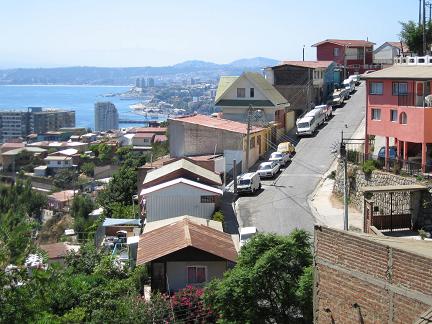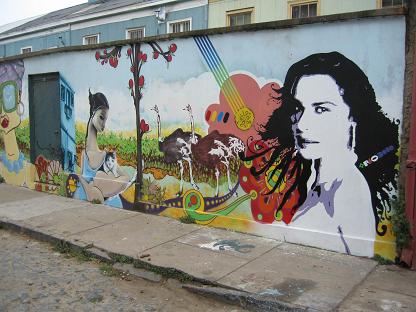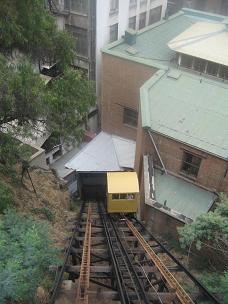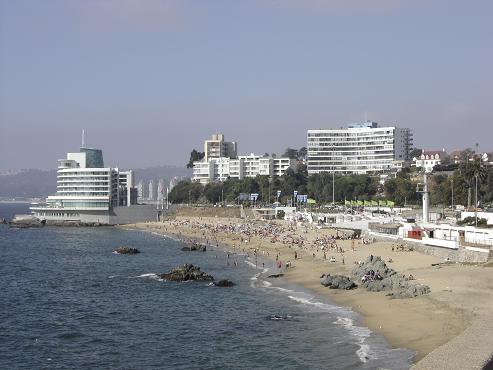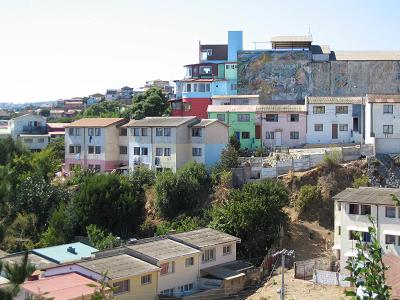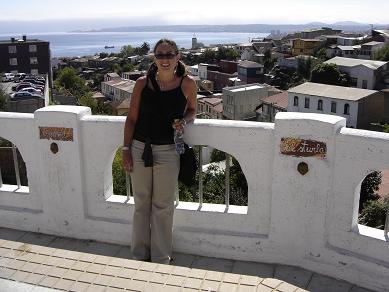The Streets of Valparaiso
As first port of call for 19th century sailing ships rounding the Horn, Valparaiso was the lo mejor puerto for all of South America´s Pacific coastline. Founded in 1536, the city did little until Chile achieved independance in the 1820´s, then the little port flourished until the Panama Canal put an end to the glory days. When Kim and I arrive for a weekend away from school, the picturesque harbour city looks like the streets of San Francisco frozen in time.
We notice the harbour area is new, and are told it is built on landfill, but the city core is long past prime. Overlooking the city centre, century old residences with frontages built on stilts, and stacked like building blocks, climb the steep cerros (hills) surrounding the harbour. Cobblestone streets, narrow and surpentine, climb the cerros, wander aimlessly and charmingly if one is not in a hurry, but may abruptly end without warning.
Kim, a classmate at Terra Autralis, and I arrive in comfort. Air conditioned Tur-Buses, leaving every 20 minutes from Santiago, and costing less than $10 for the hour and half ride, make the trip too easy. Upon arrival, we take the metro, then find our way up one of the twisty little streets to the Alturo Hotel, on Cerro Concéption. The hotel fronts onto a calle (street) so steep that no cars use it. Rose bushes grow between the cobblestones, colorful murals decorate the street frontage. We can see the harbour from here. Kim takes a sunny room facing the calle, I take one at the back with a northwest view of the Pacific Ocean.
We explore the city Saturday and Sunday. The hills are made easier for the pedestrian by using one of the 16 ascensores that climb from sea level to the hills above. In baby wooden boxcars, built between 1883 and 1916, a handful of folks at a time are lifted several hundred feet by the cable driven antiques.
We visit one museum then Kim suntans on la playa while I take the modern metro north to Viña Del Mar to check on accommodations for April when Bob Bielesch arrives.
No visit to Valparaiso would be complete without going to Pablo Neruda´s second home, La Sabastiana. All three of his homes, like his Valparaiso home shown below, were built to look like ships, both inside and out. Nobel prize winner for literature (poetry and prose) in 1971, Neruda was world famous for his love of common things most of us overlook. He celebrated the essence of life with his use of simple yet powerful descriptions. In one lovely poem he described summer as being as round and full of promise as a watermelon. I like that. In La Sabastiana, he had a oil painting of Queen Victoria on one wall but she looked lonely he bought a second painting of a 19th century english gentleman in riding clothes. He hung them close together so they could keep each other company.
Although the film changes the setting to Italy, anyone seeing El Postino will see the essence of Neruda in the actor who plays the poet and mentor to the poor postman. I am told the actor´s appearance and eclectic mannerisms closely represented Neruda´s own. Neruda died of cancer in 1973, dearly loved by his Chilean countrymen and the world that knew him.
In the evenings Kim and I chose restaurants with decks and a harbour view. It´s such a nice change to get away from school, from homework and talking like the village idiot. Speaking English for a few hours is like a tonic. Who would guess?
One night we sit on the steps of our little calle with a bottle of vino tinto and a view of the harbour lights, and talk til the wee hours of the morning. It is a pleasant way to pass the time. In an unexpected way I start talking about things I´ve carried with me since 1972. Although I don´t recognize it til later, it´s like the planets aligning, and Kim, being the skillful listener, becomes the right person in the right place at the right time to talk to. Funny how I have to travel so far in time and place to see something that was within all this time.
M. Scott Peck:
The truth is that our finest moments are most likely to occur when we are feeling deeply uncomfortable, unhappy, or unfulfilled. For it is only in such moments, propelled by our discomfort, that we are likely to step out of our ruts and start searching for different ways or truer answers.

